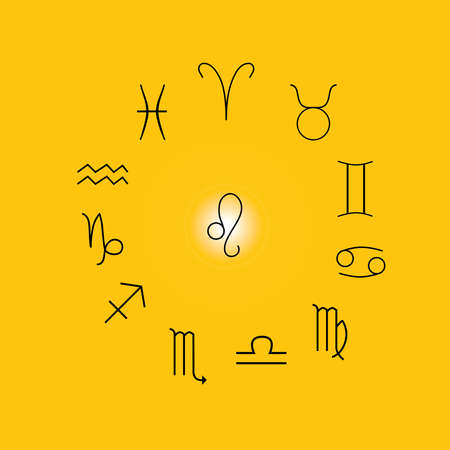1. Introduction to Lunar Eclipses in British Astrology
Lunar eclipses have long fascinated observers across the British Isles, weaving together threads of astronomy, folklore, and astrology. In the UK, these celestial events have not only been viewed as rare astronomical spectacles but also as significant moments loaded with cultural meaning. From ancient Druidic practices on windswept moors to the more modern musings of Victorian astrologers, lunar eclipses have been interpreted through a uniquely British lens. Historically, the sudden shadowing of the moon was seen as an omen—sometimes foreboding, sometimes auspicious—impacting everything from royal decisions to agricultural rituals. Today, while science demystifies much of the eclipse’s mechanics, its astrological symbolism endures in contemporary British horoscopes. Understanding the different types of lunar eclipses—total and partial—is crucial for interpreting their varying influences on personal and national astrological charts. This article explores how these two forms of eclipse are viewed within British astrology, setting the stage for a deeper examination of their distinct effects on horoscopes throughout the UK.
2. Understanding Total vs Partial Lunar Eclipses
To appreciate the astrological nuances of lunar eclipses within British horoscopes, it’s first essential to grasp the astronomical distinctions between total and partial lunar eclipses. In the simplest terms, both phenomena occur when the Earth moves directly between the Sun and the Moon, casting a shadow on the lunar surface. However, the extent of this shadow and its appearance in our night sky varies quite dramatically depending on whether the eclipse is total or partial—an important point for anyone keen on stargazing from the British Isles.
A total lunar eclipse takes place when the entire Moon passes through Earths umbra (the darkest part of its shadow). This results in that iconic “blood moon” effect—a striking reddish hue visible from most locations across the UK, weather permitting. In contrast, a partial lunar eclipse occurs when only a portion of the Moon enters Earth’s umbra, leaving part of its surface still illuminated by direct sunlight. The visual difference is notable: while total eclipses can turn night into an atmospheric spectacle reminiscent of ancient folklore, partial eclipses offer a subtler shift, often observed as a distinct “bite” out of the lunar disk.
| Eclipse Type | Description | Visibility in Britain |
|---|---|---|
| Total Lunar Eclipse | The entire Moon enters Earths umbra; appears red or coppery | Frequently visible if skies are clear; highly anticipated events for UK observers |
| Partial Lunar Eclipse | Only part of the Moon enters Earths umbra; partial shadow visible | Often observable; less dramatic but still significant for astrology enthusiasts |
In practical terms for those living in Britain, cloud cover and long summer days can sometimes obscure these celestial events, but when visible, both types are met with considerable public interest—often covered by local news and discussed among amateur astronomy groups. For astrologers working within a British context, recognising these differences isn’t just an academic exercise—it helps tailor readings to reflect both what can be seen in the sky above Blighty and how these events might resonate in local cultural consciousness.

3. Traditional British Astrological Perspectives
British astrology has a long and storied tradition, with lunar eclipses consistently regarded as significant celestial events. Historically, astrologers in the UK distinguished between total and partial lunar eclipses not only in terms of visibility but also in their astrological impact. In classic approaches, such as those advocated by William Lilly in his seminal work “Christian Astrology” (1647), total lunar eclipses were seen as harbingers of profound collective change, often linked to shifts within the monarchy or national consciousness. Partial lunar eclipses, on the other hand, were viewed as less dramatic yet still notable—often interpreted as gradual transitions affecting specific communities or issues rather than sweeping transformations.
Throughout the 20th century, prominent British astrologers like Charles E.O. Carter and Margaret Hone revisited these interpretations, integrating psychological perspectives while maintaining a respect for traditional symbolism. Carter frequently emphasised the heightened emotional charge of total eclipses, suggesting they might catalyse personal revelations or public sentiment shifts in the British context. Hone, meanwhile, highlighted that partial eclipses could mark quieter periods of adjustment, especially when falling across sensitive points in the national chart—such as those relating to London or Westminster.
Modern practitioners continue this nuanced approach. Influential contemporary astrologers like Deborah Houlding and Frank Clifford note that in British horoscopes, total lunar eclipses are often timed with national debates or moments of reckoning—sometimes even coinciding with general elections or major royal events. Partial eclipses tend to be associated with subtler changes in public mood or policy shifts that unfold over months rather than days. This blend of classic and modern interpretations gives UK astrology its distinct flavour, anchoring eclipse analysis firmly within both historical context and current affairs.
4. Astrological Effects of Total Lunar Eclipses
Total lunar eclipses are significant astrological events, often perceived as powerful catalysts for change within the British horoscope tradition. These rare celestial occurrences are believed to amplify emotional energies, bring hidden matters to light, and instigate shifts that can ripple through both personal and collective spheres in the UK. The dramatic visual nature of a total eclipse—where the Moon is fully cloaked in Earth’s shadow—symbolically represents culmination and revelation in astrology. For Britons, this can translate into intensified feelings, breakthroughs in relationships, or unexpected social developments.
Astrologers across Britain frequently associate total lunar eclipses with moments of reckoning. Emotions may run high, particularly among those with prominent placements in the zodiac signs directly affected by the eclipse. Traditional British horoscopes suggest that during a total lunar eclipse, there is a heightened need for introspection and emotional honesty. Long-standing issues, especially those related to family dynamics or societal roles (which hold particular resonance in UK culture), may surface for resolution.
Key Emotional Impacts in British Horoscopes
| Astrological Area | Typical Eclipse Influence | British Cultural Context |
|---|---|---|
| Family & Heritage | Revelation of family secrets; confronting ancestral patterns | Emphasis on lineage and tradition may be challenged or redefined |
| Social Circles | Sudden changes in friendships or alliances | Community ties, such as local clubs or societies, may shift unexpectedly |
| Personal Identity | Crisis or breakthrough regarding self-understanding | Reflection on one’s role within British society; questioning status quo |
| Public Life & Reputation | Exposure of hidden truths impacting public image | Potential for scandals or revelations in public institutions |
Typical Social Effects Observed During Total Lunar Eclipses in the UK
- Increased Public Discourse: Major eclipses often coincide with intense debates or revelations in Parliament or the media.
- Collective Mood Shifts: There may be a palpable sense of anticipation or restlessness, especially in urban centres like London and Manchester.
- Cultural Reflection: Arts and literature produced around eclipse periods often explore themes of transformation and identity, resonating with British audiences.
Navigating Emotional Highs: Advice from British Astrologers
- Acknowledge emotions: Allow yourself space to process heightened feelings rather than suppressing them—a point echoed by many UK-based astrologers.
- Connect with community: Seek support from friends or local groups when experiencing upheaval, reflecting the strong community spirit found throughout Britain.
- Meditate on tradition vs change: Use this period to reflect on which customs serve your growth and which might be released.
The Bottom Line for British Horoscopes
Total lunar eclipses are moments of deep significance within British astrology. They invite individuals to confront their true selves and collectively reconsider social norms. While they may trigger emotional turbulence and social surprises, they also offer opportunities for meaningful transformation within both personal lives and the wider tapestry of British society.
5. Astrological Effects of Partial Lunar Eclipses
Partial lunar eclipses, while often overshadowed by their total counterparts, carry a distinct astrological weight within British horoscopes. In astrology, partial eclipses are seen as moments of gradual revelation rather than absolute transformation. For those studying or living in the UK, these celestial events are interpreted with an emphasis on subtle shifts and incremental changes, rather than dramatic upheavals.
The Nuanced Symbolism of Partial Eclipses
Unlike total lunar eclipses, which symbolise culmination and closure, partial lunar eclipses are viewed as opportunities for partial insight. Astrologers in Britain often interpret these events as times when truths come to light slowly—much like the British weather, changes are noticed in stages rather than all at once. This means that issues related to the eclipse’s placement in the natal chart may begin to surface gently, offering space for reflection and adjustment without overwhelming disruption.
Practical Impact on British Horoscopes
In practical terms, a partial lunar eclipse might highlight unresolved matters that have been simmering below the surface. For many Britons, this can manifest as a period where old family dynamics or workplace tensions become more noticeable but not yet critical. The British approach to such matters tends to be measured and pragmatic—addressing concerns thoughtfully and with restraint rather than immediate action.
Regional Context and Collective Mood
Given the UK’s historical inclination towards stoicism and understatement, partial lunar eclipses resonate well with the national psyche. These periods often encourage quiet contemplation, journalling, or seeking advice from trusted friends and mentors. The effect is less about public drama and more about private realisation—a pattern reflected in both traditional British astrology columns and modern horoscopic interpretations.
Personal Growth: A Gentle Nudge
For individuals, especially those whose sun or moon sign is directly affected by the eclipse’s transit, there is a gentle nudge towards personal growth. Rather than feeling forced into change, Britons may feel inspired to take small but meaningful steps—such as initiating difficult conversations or making minor adjustments to their routines. It’s a time for mindful progress rather than sweeping resolutions.
Overall, partial lunar eclipses serve as gentle catalysts within British horoscopes. Their effects unfold quietly but persistently, aligning well with both the landscape and temperament of the UK: steady change under grey skies, with plenty of room for tea-fuelled reflection along the way.
6. Comparing Impact: Total vs Partial Eclipses on British Horoscopes
When considering the astrological effects of lunar eclipses within a British context, it is essential to draw a clear distinction between total and partial events. Total lunar eclipses are often regarded by astrologers as moments of heightened intensity—akin to a celestial ‘reset’ button that can catalyse significant life changes. In UK horoscopes, such an eclipse may be interpreted as a time when deeply rooted issues come to the surface, demanding resolution. For instance, a total eclipse falling in Capricorn could signal dramatic shifts in traditional British institutions or public attitudes toward authority, mirroring broader cultural themes such as evolving perspectives on the monarchy or government.
In contrast, partial lunar eclipses are seen as subtler, their influence less overwhelming but still notable. Astrologically, these events are thought to highlight areas requiring incremental adjustment rather than wholesale transformation. In a British horoscope, a partial eclipse might coincide with minor yet meaningful developments—such as gradual changes in local communities or shifts in workplace dynamics, reflecting the country’s fondness for evolutionary rather than revolutionary change.
To illustrate: imagine a total lunar eclipse occurring in Cancer, often linked to home and family matters. This could prompt widespread conversations about housing policy or national identity across the UK—topics that resonate strongly within British society. Meanwhile, a partial eclipse in Virgo might encourage individuals to focus on health and daily routines, aligning with the British penchant for orderly living and practical self-improvement.
Ultimately, both types of eclipses have their place in shaping horoscopes with uniquely British nuances. Total eclipses tend to mark those rare moments when something momentous is set in motion—a new direction for the nation or dramatic personal revelations—while partial eclipses support the ongoing process of refinement and adaptation so characteristic of British resilience.
7. Practical Guidance for UK Astrological Enthusiasts
Making the Most of Lunar Eclipses in Your British Horoscope
Lunar eclipses, whether total or partial, are significant moments in astrology, often sparking periods of reflection, revelation, and change. For those navigating the nuances of British culture and lifestyle, recognising how these celestial events shape personal horoscopes can provide valuable guidance. Here are some practical tips and considerations tailored to UK astrological enthusiasts:
Tip 1: Note the Local Timing and Visibility
Always check when and where a lunar eclipse will be visible from your location in the UK. The experience of witnessing an eclipse—be it under cloudy London skies or a clear Highland night—can deeply influence your emotional response and ritual practices.
Tip 2: Consider the Eclipse Type
Total lunar eclipses tend to herald more sweeping internal shifts, while partial eclipses might signal subtler changes or incomplete revelations. Reflect on whether you’re prepared for major transformations (total) or gradual adjustments (partial), especially as they relate to your natal Moon sign.
Tip 3: Sync with Traditional British Practices
Many in Britain mark celestial events with communal gatherings, herbal teas, or quiet countryside walks. Incorporating such traditions can ground your eclipse rituals in local culture, making them more meaningful and personally resonant.
Tip 4: Review Your Horoscope for Key Houses and Aspects
Lunar eclipses activate specific areas of life depending on which houses they fall in. Use reliable British astrological resources to determine which part of your chart is being energised—relationships (7th house), career (10th house), or home life (4th house)—and plan accordingly.
Tip 5: Journal Your Experiences
The British penchant for reflective journaling can be especially beneficial around eclipses. Documenting dreams, emotions, and any sudden insights will help track subtle shifts over time, giving clarity as the eclipse energies unfold in the weeks ahead.
Final Considerations
No matter the type of lunar eclipse, remember that their effects are both personal and collective. Engage with local astrological groups or online forums to share experiences and interpretations rooted in UK perspectives. By weaving together cultural heritage and astrological awareness, you’ll navigate eclipse seasons with greater confidence and insight.


